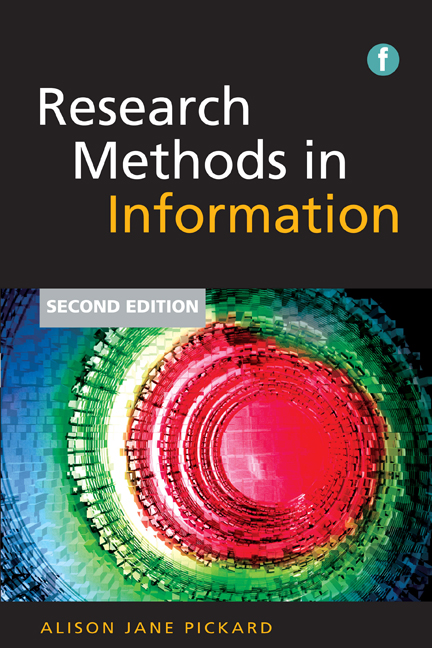Book contents
- Frontmatter
- Contents
- Preface to the second edition
- Acknowledgements
- Introduction
- Part 1 Starting the research process
- 1 Major research paradigms
- 2 Reviewing literature
- 3 Defining the research
- 4 The research proposal
- 5 Sampling
- 6 Research Data Management
- 7 Ethics in research
- Part 2 Research methods
- Part 3 Data collection techniques
- Part 4 Data analysis and research presentation
- Part 5 Glossary and references
- Index
2 - Reviewing literature
from Part 1 - Starting the research process
Published online by Cambridge University Press: 08 June 2018
- Frontmatter
- Contents
- Preface to the second edition
- Acknowledgements
- Introduction
- Part 1 Starting the research process
- 1 Major research paradigms
- 2 Reviewing literature
- 3 Defining the research
- 4 The research proposal
- 5 Sampling
- 6 Research Data Management
- 7 Ethics in research
- Part 2 Research methods
- Part 3 Data collection techniques
- Part 4 Data analysis and research presentation
- Part 5 Glossary and references
- Index
Summary
Bernard of Chartres used to say that we are like dwarfs on the shoulders of giants, so that we can see more than they, and things at a greater distance, not by virtue of any sharpness of sight on our part, or any physical distinction, but because we are carried high and raised up by their giant size.
(John of Salisbury, 1159, McGarry translation, 167)Introduction
Literature reviews can take on two roles, one is as a research method in itself and the other as preparation for further empirical investigation. This chapter does not focus on systematic reviews for evidence-based practice, which has a very particular design. Here I focus on ways of exploring the literature to identify what is already known and what needs to be explored further; once literature is identified the approach offered here can be used for any literature synthesis. If you think of your research as a grand adventure, then the literature review, in the form we discuss here, is the runway to that grand adventure; it is the thing that gets you off the ground and ready to fly. The literature review is an adventure in itself; discovering what is already known about a particular topic, sometimes from within a number of different disciplines, and bringing it together, often for the first time. It is obvious why Google Scholar™ uses a variation of the quote from John of Salisbury: we see further because we can explore the work of those who have gone before us, stand on the shoulders of their discoveries and see further as our own questions develop. This means exploring your topic both within your own academic discipline and across disciplines. For example, if you were interested in how young people interact with information you may find yourselves exploring the literature in information science, communication, education, psychology and sociology. It is the topic that drives the investigation and that means sometimes having to look outside the obvious to determine the state of knowledge. A literature review is a ‘runway’ because it should:
• clarify your own research aims
• provide you with the depth and breadth of subject knowledge necessary
• form the theoretical framework for your own empirical investigation
• contribute to your research design.
- Type
- Chapter
- Information
- Research Methods in Information , pp. 25 - 38Publisher: FacetPrint publication year: 2013



